Sodium: The Story Of Abisoye Fagade
A Neusroom exclusive interview with Abisoye Fagade, CEO of Sodium Group
and a leading governorship aspirant in Oyo State
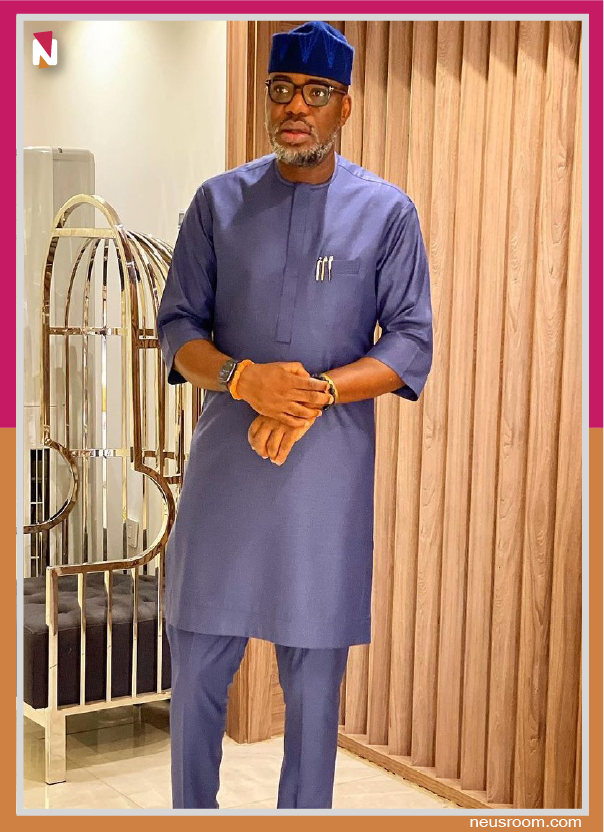
Neusroom’s Michael Orodare sat with Abisoye Fagade, CEO of Sodium Group, for two hours where he talked about his early life, business, and why he’s keeping a keen eye on political office.
How did the journey start?
I would say my journey started with De-United Foods, the manufacturer of Indomie noodles when I finished my service in 1999. The then General Manager said he was looking for a young man who could just market. I didn’t know what marketing meant at that time. So I joined De-United, and the idea of our marketing at that time was more or less what we now call direct marketing. So I joined the marketing team, and we took the brand all over the 36 states of this country.
So after like one year of travelling all over Nigeria, I joined the core marketing team, I started having meetings with Insight (advertising agency), I started building a brand structure for Indomie at that time and started doing television commercials (TVC) campaign, and that’s how the marketing journey started.
If it wasn’t marketing, what would you have done?
I would have been a singer (laughs). But what would I have done? I’ve never thought about it. I believe God created me to be a marketing person because I was born a customer/client service person. I know how to manage people, but there’s a way your life is structured that you get what you are made for.
So if it’s not marketing, I think I would just become a pastor (laughs).
How did the Sodium Group start?
After I left Indomie, I joined Starcomms, a telecoms company. I worked with them for a year and a half. After leaving Starcomms, I joined the IMS Group working with Tequila Event as a Client Service Manager.
I remember we were part of the people who launched MTN at that time; we had a lot of mind-blowing experiential activations for MTN. Then I caught the attention of my then boss, the MD of SO&U Group, Mr Udeme Ufot and Yemi Odusote. I was invited for an interview which I passed. Then I joined the SO&U Saatchi and Saatchi Group in 2006 after getting married as an Assistant Director in charge of experiential marketing. We did great stuff together; that was when I worked with Obong Victor Attah (Akwa-Ibom former Governor) on Ibom Golf, a golf experience that brought Colin Montgomery, Nancy Lopez and Retief Goosen to Nigeria.
I worked with them for two and a half years then realized that there’s something in me that can do this on my own. So I thought about it, I spoke to Mr Ufot about it, and I got his blessings, and that was how the Sodium Group Started.
I realized there was a gap that still needed to be bridged, so I started Sodium Group as a full-blown experiential agency at that time. Sodium began in 2009, and here we are; Sodium has given birth to so many other companies in oil and gas, hospitality, manufacturing and agribusiness.
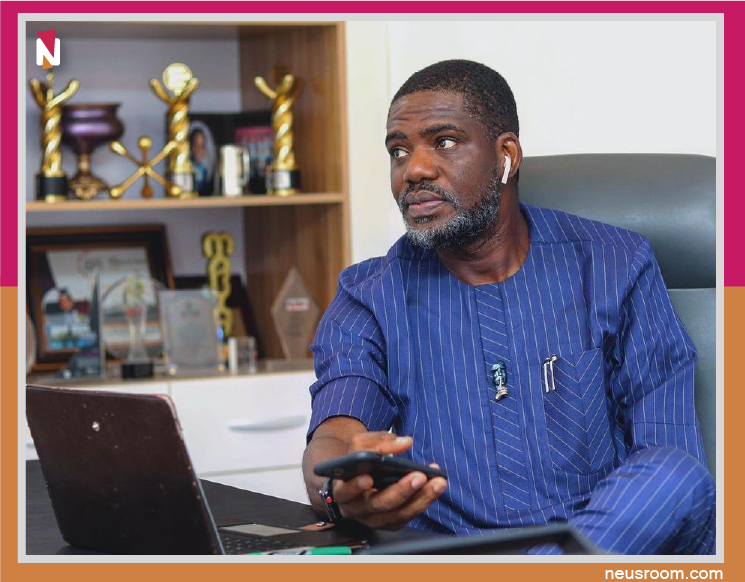
From a turbulent beginning in 2009, Fagade now sits atop a group of companies. Photo: Instagram/Saltofdworld
What was the journey like at the onset?
This story you asked me is part of the things that formed my person and my life. After I left Saatchi and Saatchi, the first job we ever pitched for was at Coca-Cola then, and the first job I ever got at that time in 2009 was the Coca-Cola Christmas tree, and it was about N120 million PO.
It means you’ll do the job and you’ll be paid 30 days after. For a young entrepreneur, I didn’t have anything. I probably came out with maybe less than N10 million I saved from my work, and then I’ve already paid for offices, I’ve paid for computers, I’ve been paying salary, and there was this challenge of how am I going to execute this? That was the fear of my client at that time. You’re a young agency, how would you execute this job and I wanted to prove to them that I could do it.
So I went everywhere trying to see who could lend us money, and all the big banks said, you are young, you don’t have pedigree, we can’t support you. I remember that time, this is not me marketing this company, Adosser microfinance, there are young men like me, I just went to them, and those guys said, okay, we saw your passion, we agree with you, but you don’t have pedigree, I said I have to do this job. Those guys were the ones that lent me some money, like N10 million.
When I finished the whole N120 million job, it was huge; it was a success. I barely could manage to have five to six million naira profit from the job because I was paying bank loans. From there, it’s been like a rollercoaster because the Nigerian system does not support SMEs, we have experienced it over the last 14 years, and it’s been a struggle all the way.
If you are not a silver spoon to grow in this country, I’ll say it takes the grace of God and your ruggedness, commitment, consistency, persistence. The agency would have died years back because of banks. I’ve had issues with banks because we are doing a little business, and we have to keep taking from banks for us to be able to execute multinational jobs.
So that’s how the business started; we didn’t have any money, we kept borrowing, and unlike real core advertising where most clients pre-pay, for the experiential agencies, they don’t pre-pay. They only give you a PO, they expect you to do magic, and then they’ll pay you 45 – 60 days after.
So for all my brothers that are into experiential marketing out there, I’ll say you guys are doing well, nobody’s hailing you, but I’m hailing you guys.
What are some of the most iconic projects you have executed?
All of them are iconic; I can’t even pick one.
Is it the Sprite ‘Triple Slam’ that we did?
Is it the ‘Share a Coke’? We were the first agency that did share a Coke experience here in Nigeria, and I could remember; we were the first set of agencies that said, let’s customize a bottle of coke for celebrities, we did that, and everybody caught the bug.
It was the ‘Open Happiness’ campaign that we did in Nigeria that took the agency to Tanzania, where we got into further trouble trying to expand. We did the share a Coke campaign in Nigeria, and Coca-Cola Tanzania saw that and showed interest. We went to Tanzania, presented the idea, they loved that concept, and they agreed for us to come and do the activation. So we started moving ourselves to Tanzania. They are a hostile set of people when it comes to business.
If you’re an entrepreneur in this country and you’re still pushing, I’ll say well done again.
So while trying to expand our business, we got into more trouble. So it’s been trouble all the way, but the grace keeps us just going. Grace is the reason why we’re still here today.
So if you want to mention iconic projects, there are too many to mention; all our projects are iconic back-to-back.
My major client, I would say then, was Coca-Cola; we were seriously focused on Coca-Cola; we’ve done jobs for Guinness, MTN, McVites, the biscuit company, and many of them. Capable hands are running the agency now, so I’m not too conversant with what they are doing presently.
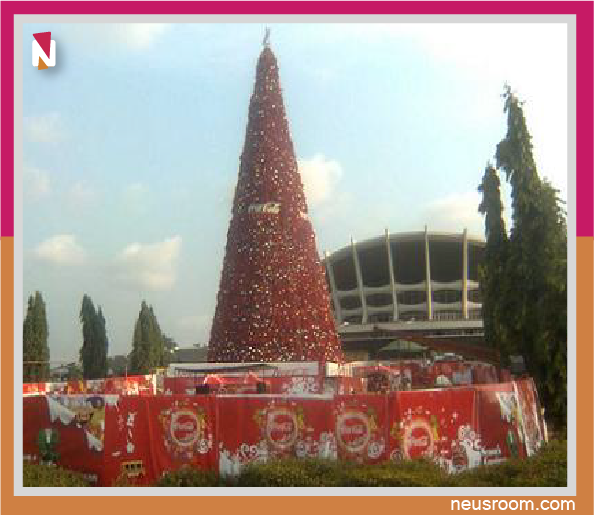
The Coca-Cola Christmas tree, about 33 metres high, was Sodium’s first project. Photo: Instagram/Brandcrunch.
Tell us about what went down in Tanzania.
Tanzania is an issue of ‘why would a stranger come and take our treasure?’
They were not looking at the creativity; the papers are there to testify; we did things that had never been done before in Tanzania. We are the first agency in this part of the world that did mob activation. Even their president commended it; the papers are there.
So the agencies there rose and said, how can an agency from Nigeria come and establish here and start doing business. Which is good, we can do that in Nigeria too. They started fighting us, a project meant to last one year, we couldn’t even spend two months. We couldn’t borrow in Tanzania; we borrowed in Nigeria to fund a project in Tanzania.
We were changing from naira to dollar to shilling. In between those things, we were losing money, but it is what it is, we learned our lessons, and we’re still moving on.
Details of Tanzania is for another day; you have to do a whole episode.
What does it take to make a business succeed from your experience in Tanzania and Nigeria, where everything seems to be working against SMEs?
It takes you.
It’s clearly about what you want for your vision; once you lose that, you have lost all hope. There’s no template on how a business can succeed in Nigeria; another battle comes up when you win a battle. That’s Nigeria for you, so you should be rugged enough to say I’m focused on what I’m doing, I’m going to succeed.
I know a lot of people that we started agencies together that have gone back to take a paid job, but for me, I have to just keep going, and you know some things will be done to tarnish your image and bring you down, you just have to keep going.
So I can’t tell you there’s a template for how a business can succeed in Nigeria. At some point, you’ll look at yourself, don’t you think I should just leave this country? But you just have to keep going because when I look at about 80 to 100 Staff, I’m paying, I look at them and say this family depends on me, if I leave them now, I’ve left about a hundred homes stranded, so I keep pushing, and here we are not dead, we are still alive.
Like they always say, a company is a growing concern, so you have to just keep going.
Can you tell us about your other business interests?
Well, why not? When I realized that one stream of income is like me killing myself, and then banks were going to kill me if I didn’t start multiple streams, I said, okay, let’s diversify, what can we do? So we started with manufacturing, we started with bottled water,
What is it that people need every day? We ventured into water, and then that is still there. I won’t tell anybody to venture into the water business if you don’t have a deep pocket like Coca-Cola, or maybe the water is your by-product.
We also started with some boutique hotels. We realized that a lot of people come to the country, they don’t want the big hotels, they just want a nice place to hibernate, rest and go back to their country, so we started with Alexia’s Place, and we’ve had a couple of that now in Nigeria, then the oil and gas business.
What I’ve done is, from the experience I’ve accumulated, I’ve realized that when you leave the professionals to do their job and give them the support that they require, the profits will come.
I have a connection, and I have the basic start-up fund, so what I’ve done is invest in different kinds of businesses with my small change, and they’re bringing rewards. I’ve left professionals to do their job while I just do the job of the boardroom management.
Then agribusiness, we are into export of the basic products in Nigeria so that kind of earns some dollars.
And a couple of other businesses that are still growing, and now I’m into politics because I feel the worst of us should stop ruling over the very best of us. If not because of the policies they have made that affected the likes of us because we decided to stay in business, Nigeria would probably be a better place.
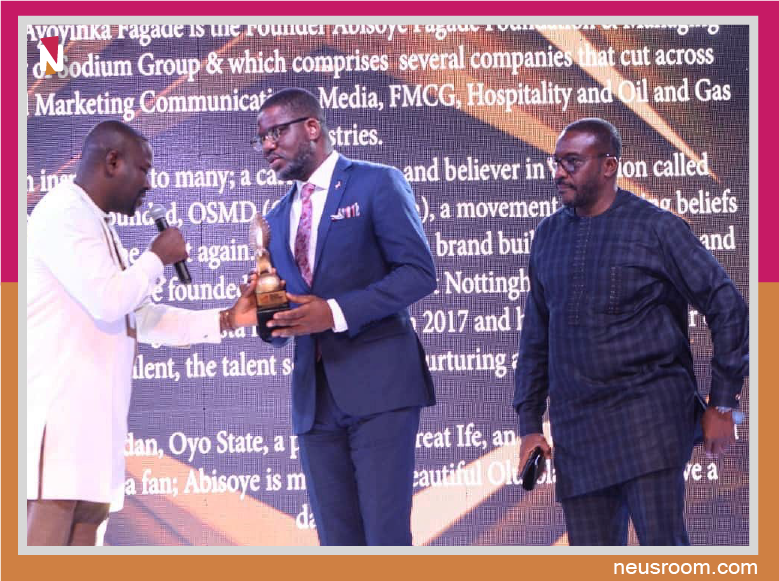
From Coca-Cola, we’ve done jobs for Guinness, MTN, McVites, the biscuit company, and many of them. Photo: Instagram/Saltofdworld.
How did Sodium Group cope with the impact of the COVID-19 pandemic when it shuttered businesses in 2020?
Well, I would say we copped just the way everybody is coping, we had to dip our hands into our savings, hold our hands and keep moving because if anybody tells you that they know how long this will take and they understood it from the beginning, they’re telling a lie. But what we did was that we called ourselves, how do we move along?
So the staff were the ones that started giving ideas on what to do. I don’t want to share those ideas here, but what we did most importantly was we held our hands, and we went through it together. We had a major profit last year – we didn’t lose our lives because they said your biggest profit is staying alive. So that’s our biggest profit, we didn’t lose anybody, the company is still there, that means we still have hope, and throughout last year nothing was happening in that industry, but all the other businesses kept us going because it’s a chain of business.
What do you think the coming years will look like for the marketing communication industry?
It’s never going to be the same. For a company that can’t innovate and re-innovate, it’s dead on arrival.
You need to start thinking on your feet; you don’t know what direction, but be prepared that whatever direction this goes, you’re ready to jump on the bus and move. That’s the only thing I can say.
Nobody can tell what direction all this stuff is going, but you should be able to think on your feet, like whatever the direction this is going, jump on the bus and move because you can’t say this is the way we used to do it, Nah! Things have changed, and you need to be able to change with the trend of time.
Why politics?
Why not politics? We play politics every day, even in your homes and offices. So why can’t we apply that wisdom and experience into Nigerian politics to influence our lives?
I feel that the best of us just think we are the best, and we stay in our spot to complain. It’s time to get involved; we need to be part of these people. They will not want us to come, but we need to ease our way into their midst and start doing what we know how to do best.
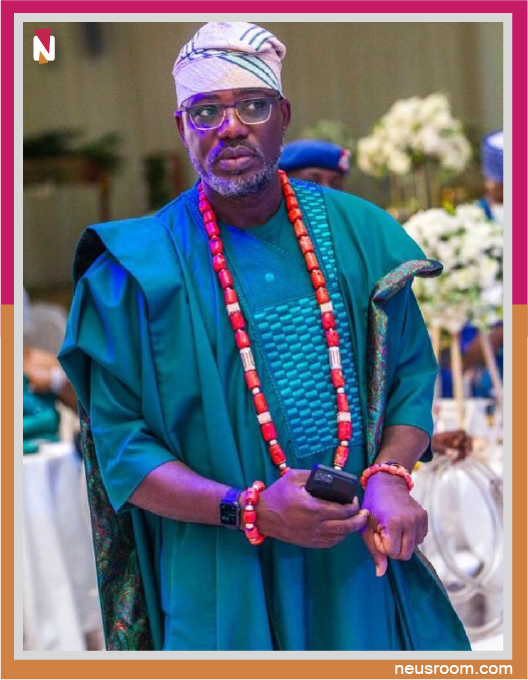
‘The best of us just think we are the best, and we stay in our spot to complain. It’s time to get involved.’ Photo: Instagram/Saltofdworld.
Bring our professionalism into play. If you’re a journalist, a doctor or whatever profession you are in, you need to start participating in Nigerian politics. Nigeria needs you; it needs all of us because we can’t leave it to these people anymore. We’ve left it to them for almost 60 years; look at where we are. You need to leave the comfort of your homes and businesses and ease your way into politics.
It’s dirty like I said to you earlier, you have a glass cup of muddy water, and you don’t want to drink it, it’s either you do something about it. But if you drop a small drop of water in that muddy water, it will not still be clean, but if you pour more pure water into that cup, at some point, the water will get clean. So the more good people that come into politics, the more you push out the bad people or else you want to carry your pure water and drink straight, or you’re not using that cup.
So you that you feel that you are good people in this country start easing yourself into politics, they would not want you to come, so why not politics? We all need to put all our hands on deck and save this country.
Some of you jump on the plane and leave to become a third and fourth citizen in other countries and still want to return here. Come back to what country? It’s high time we all did this together.
Nobody is a saint. They’ll dig up the past about you, but the good part of you is what you are projecting, and it’s what you should push forward.
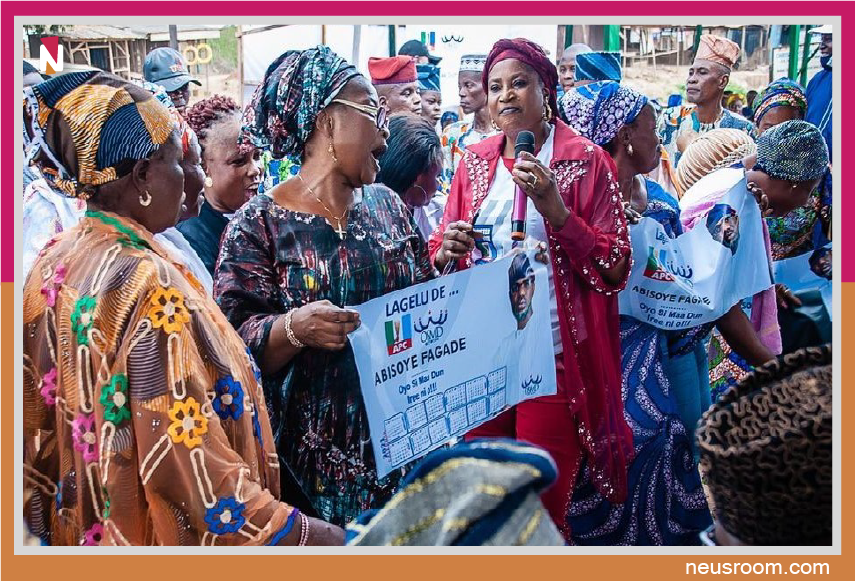
‘If we do the right thing, Oyo state will be the second economic nerve of this country.’ Photo: Instagram/Saltofdworld.
Politics is expensive and young people don’t have the resources to run for office. How do you think they can be part of this?
Most people playing politics who are wealthy today went into politics because they were poor; they didn’t have the money and the means before they started politics.
It’s like saying marriage is expensive; I don’t want to get married, won’t you marry? But you understand that marriage is not expensive until you get into it. You understand your wife, and you guys start a life together. Marriage is not expensive when you have the understanding. Politics is not expensive; it’s politicking that is expensive. When people see the value, they will draw you closer and provide the means to do the politicking.
It is now left to you not to lose your value.
Whatever it is you want to do in life is expensive. Politics is not expensive; it will only be expensive if you’re going to play it big. So the resources are there, and for me, I feel God has granted us the resources to compete. I know that politics is not expensive.
OSMD has been doing a lot for young people in Oyo state. What’s it about?
I just felt like handing out money is not enough for people; you need to do a lot more. You need to understand the value system of this country. What we do basically is to see how we can instill more value into our young people, take out this idea of them being too dependent on people.
Oyo Si Ma Dun (OSMD) is just a way to help the youth of this country navigate life, especially in Oyo state, and the foundation has done a lot not just in Oyo State but Nigeria as a whole.
We’ve done seminars, we’ve done a lot of business empowerment, we are doing a lot of mentoring for young businesses, and we’ve done a couple of international conferences. We are partnering with some business schools globally, we are in talks with Stanford Seed, and we are trying to also speak with some other business schools outside Nigeria to see how they can help SMEs scale up their businesses in Nigeria.
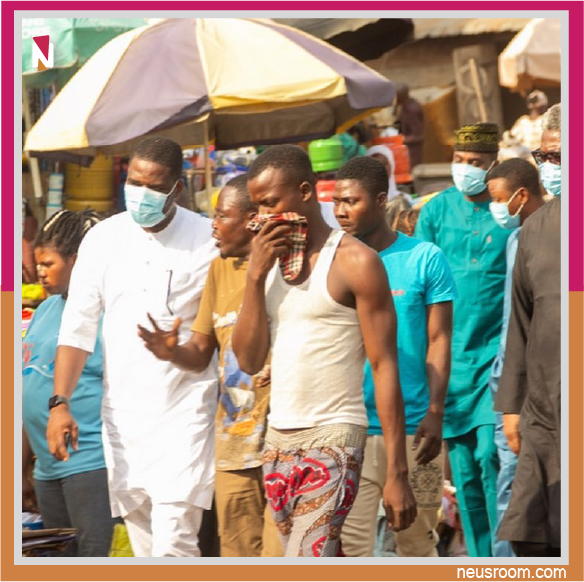
Handing out money is not enough for people; you need to do a lot more. Photo: Instagram/saltofdworld
Why do you want to run for Governor?
Why not Governor?
I feel that that’s the only position that can give me the kind of executive power and the financial muscle to make the kind of paradigm change I want in Oyo State. So if you want to make a change, you have to take the bull by the horn, and that’s me taking the bull by the horn. As the state governor, you’re responsible for the state, and you can make the kind of changes that you want to see.
Where do you see Oyo State in 2027 if you emerge Governor in 2023?
If we do the right thing, I feel the Oyo population will increase to about 8 million. When people see a safe, economically viable and infrastructure oriented state, you attract more people. The state will be the second economic nerve of this country.
We want to take that away from Ogun state because what has Ogun got that we don’t have in Oyo state? We have an international border, and we are close to Lagos.
So I just need to market the state in a way that people will see it as being viable. People look at marketing, and they just feel it’s a waste of money. Two days ago, Messi moved to PSG, and all I could see was ‘Visit Rwanda’. I’m sure the question on so many people’s minds is, ‘What is Rwanda?’ That’s the power of marketing, the power of creating a platform that people would want to tap into.
I’m saying that’s the kind of enviable stage we want to put Oyo state in, we want to put Oyo on the world map, and the vision is very clear.
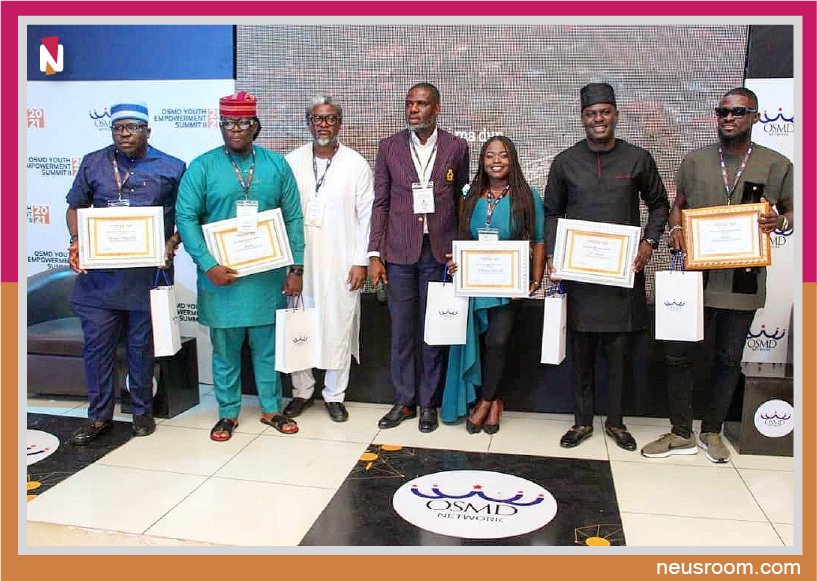
Oyo Si Ma Dun (OSMD) is just a way to help the youth of this country navigate life, especially in Oyo state. Photo: Facebook/ Photo: Facebook/saltofdworld
What do you think is missing in Oyo preventing it from overtaking Ogun?
Things are happening; infrastructures are happening. We want to appreciate the federal government for the rail system they’ve done so far. Train now goes to Ibadan. When people know that I can live in Ibadan and work in Lagos, things will change. When people see that they can bring their goods or equipment from Lagos and put them on the train, and ship them to Ibadan, we have a massive landmass in Oyo state.
I can build my factory in Oyo state, and all my ingredients can be shipped down from Lagos on the rail to Ibadan, so all those infrastructures will help Ibadan expand, and you know private partnership will go a long way, that’s where relationship comes in, creating an enabling environment for investors to come in where they feel at home where labour is cheap, where there is integrity, all those things come into play when investors are looking at where to go to.
Those are the kind of platforms we are going to create in Oyo state when they know that in this place there’s integrity, we have the type of land that we want, we have the kind of skills that we want, we are safe, we can do our businesses, and from Oyo, you ship to every other part of Nigeria. If you look at it, if you want to go to the East, the north, it’s more accessible from Oyo state and more difficult from Ogun state.
Like De-United that I used to work is in Otta, when they realized that the business could be easier from a factory in Oyo, they would come, but it takes a leader with that kind of mindset, who can build that mindset of the people to be able to do that and like I always tell people once you win mentally you can win in every aspect.
How has your business experience shaped your political view, and how do you think it will influence your politics?
I’ve had the opportunity to work with three or four different governors at different times. We were the ones that created the Kwara State logo during the time of Abdulfatai Ahmed.
We did a 360 campaign for Kwara ‘it’s good here’ while trying to bring in investors, and it worked really well. I realized that if you are marketing-oriented, you are always looking at your return on investment. How do you get the return on investment for your state and your people? How do you push your things in such a way that the world is looking at them and seeing opportunities? How do you create a platform that can present opportunities for the rest of the world?
So being a marketing person has shaped my thinking in terms of how I look at things holistically. I don’t just look at things in terms of naira and kobo, I look at things from the angle of value system and that for me goes a long way.
At what point did you take an interest in politics?
I took an interest in politics when I realized that a tree could not make a forest. You need to create wealth for people so you can live peacefully, and I realized that politicians are consciously trying to create poverty so that people can not ask questions. That’s when I took an interest in politics because you need to create wealth for people.
How do you create wealth for people? Let them have good jobs, housing, basic things of life, food, shelter, more than 60 percent of Nigerians can’t afford that right now, so let’s start from home – Oyo state.
That’s when I took an interest in politics.
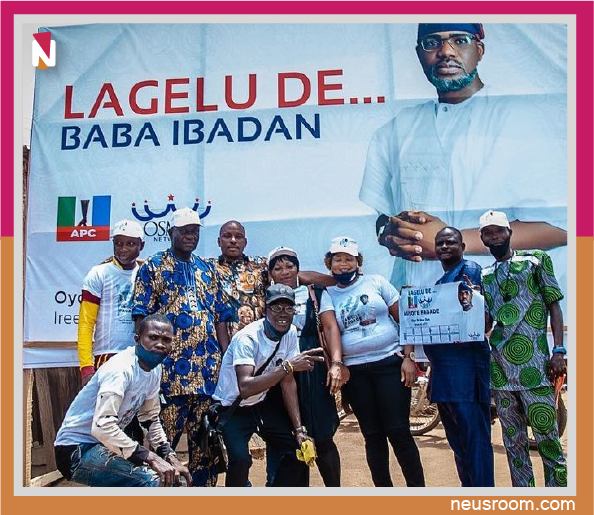
I took an interest in politics when I realized that a tree could not make a forest. You need to create wealth for people so you can live peacefully. Photo: Instagram/Saltofdworld.
Do you think the core politicians who have created poverty as a political weapon would give you space?
I don’t expect them to, what I expect is the good people like yourself, and you that you’re watching me would join your hands with mine and do this movement together, we would join the politicians and we would do the right thing.
They will not allow you, the politicians will not want you to come and join politics because they will tell you that politics is dirty, they will scare you away, but no, we’re not scared because the time is now for us to be able to try and see how we can take over this country, not hijack the country, and make them do the right thing.
What are some of the most memorable things about your childhood?
I grew up in a family of eight, three boys, three girls, my mom and dad. My father was a banker, a very sharp banker and my mom was a teacher.
My family is quite large because we have uncles and aunties living with us. My father was a very generous man, he had a lot of families living with us, so it was fun all the way.
I had a very interesting growing up, and I wanted to be a Naval officer, but my father didn’t want me to join the military.
So growing up was fun and I was born a Christian to a CAC (Christ Apostolic Church) family. CAC Irefin, to be precise. Remembering my growing up, I can’t forget my father taking us to church every Sunday in his 504 Peugeot new chassis, and we’re playing this Celestial song (by Steve Pelemoh).
Growing up was fun, and I didn’t have a tough background, but we were middle class, and that was when what they called middle class existed in Nigeria.
Why the Navy?
I just like the way they look, the white thing, the Navy seal, the way they look, I like their job, I like to sail, I like to travel, I like everything about them, but that was never to be. I am what I am now; I’m proud and happy that I’m a marketing communication person turned serial entrepreneur.
How did your parents influence your lifestyle?
My father influenced my dressing. He was a powerful dresser, my father had tribal marks, but you know, when you see this man with tribal marks in a suit, always on point.
When he died, after he had retired for almost six years, we still counted nearly 120 suits and over 200 Marks and Spencer shirts. Agbada was uncountable. So my father was a fashionista; he influenced my sense of fashion if I have any.
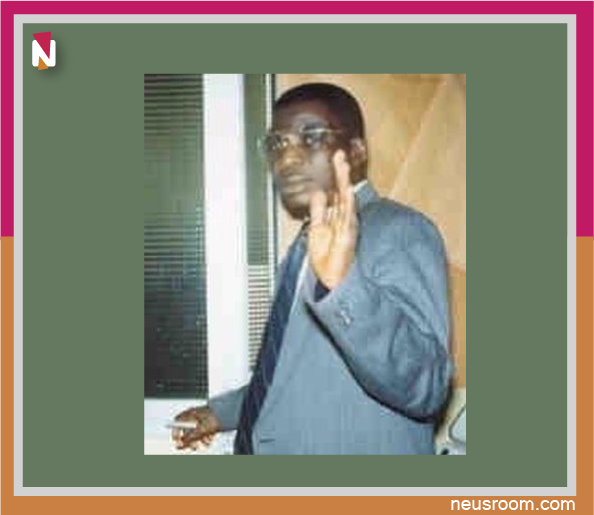
My father influenced my dressing. He was a powerful dresser. When you see him with tribal marks in a suit, always on point. Photo: Instagram/Saltofdworld.
Then my mom’s humility humbles me; my mother was humble to a fault. She was humble, and I took to both of them. I’m not saying I’m humble, but I think I’m humble, so they influenced my life, raised a good child, and am happy with what I’ve become.
So what do you think will be most memorable about them?
I’ll miss my mother’s prayer and my father’s warning for over 15 years now. He will always say remember the son of whom you are. I missed that, and I’ll say may their souls continue to rest in peace.
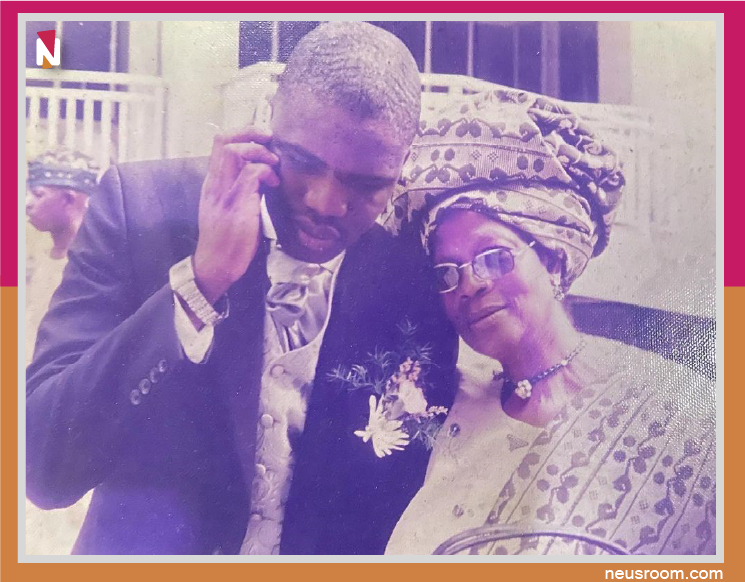
My mom’s humility humbles me; she was humble to a fault. Instagram/saltofdworld
So how did you receive the news of mama’s death?
The night before, we had a tournament; my friend Steve Babaeko was 50. I played this tournament. Steve and I have this thing with golf, we always just challenge each other, so I played this tournament, I think I won the closest to the pin on one hole, so I went for the prize representation the night before my mom died and then we had a blast. I was over happy that night, I was just too happy that I got home tired, I slept off, so I missed my sister’s call, and the call was from my mom trying to speak with me in the middle of the night, but I had slept off, and I woke up the following morning to hear that my loving mother died. I was shocked.
Was she sick?
Maybe for like a day, you know old age. She died at 78; she wasn’t sick for a long time. I think that was when God decided it was time, and she left a word of prayer for me.
How did you become known as Sodium?
Do you know what Sodium means? It means Salt, and in everything that you eat, there’s Sodium in it. That name was given to me in secondary school, we were in a lesson. Our Chemistry teacher was like, you this boy you’re always jumping up and down like Sodium and that’s how the name stuck.
He didn’t know what he was doing when he called me that name, so growing up, I started researching, and I joined the Bible to it, so I came about Salt of the world.
So when I was opening my Instagram account, I decided to use ‘Salt of the world’. Because someway, somehow, you’re going to need me.
When did you start playing golf?
I started playing golf in 2007 when I brought Colin Montgomery to Nigeria. It was Colin that asked me, ‘do you play golf?’ I said no. And he said, ‘oh my God! You don’t know what you’re missing until you start playing golf’, so that year, I registered at the Ikoyi club, and since then, there’s no looking back.
Golf is life; it teaches you a lot of lessons.
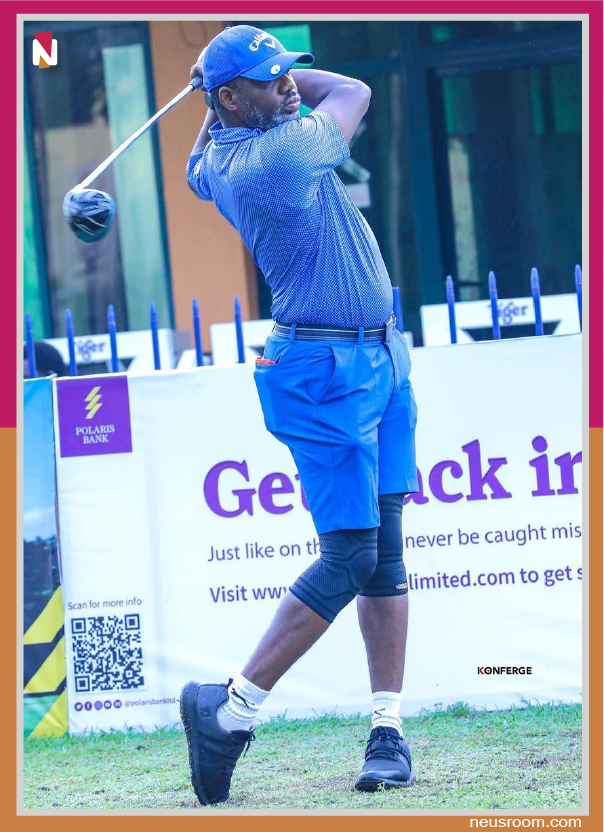
You don’t know what you’re missing until you start playing golf. Photo: Instagram/Saltofdworld.
So when you’re not playing golf, not in the office, and not in political meetings, what are you doing?
I’m probably in the corner of my room because my life is too eventful, so the only time I enjoy myself is when I’m in my room on my bed, maybe reading something online, watching a movie, I like watching Yoruba movies. I won’t lie to you; I’m an addict. Then listen to music. I love Yoruba music a lot.


Wooh so insightful and inspiring. I pray the lord grant you all your heart desires.
I believe in your aspirations as a leader. And I know this is just the beginning
Thump up 4 you 🙏